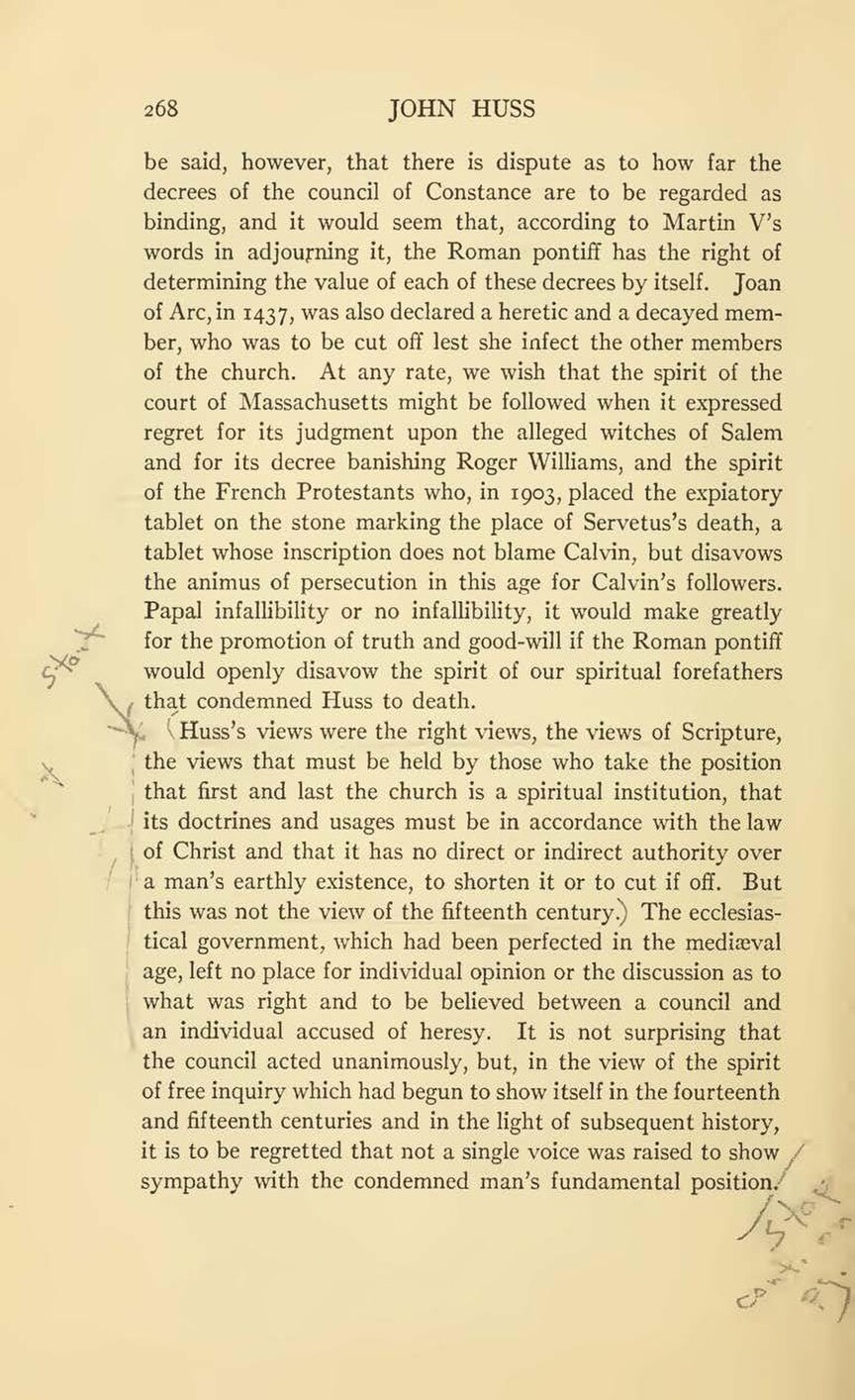start be said, however, that there is dispute as to how far the decrees of the council of Constance are to be regarded as binding, and it would seem that, according to Martin V’s words in adjourning it, the Roman pontiff has the right of determining the value of each of these decrees by itself. Joan of Arc, in 1437, was also declared a heretic and a decayed member, who was to be cut off lest she infect the other members of the church. At any rate, we wish that the spirit of the court of Massachusetts might be followed when it expressed regret for its judgment upon the alleged witches of Salem and for its decree banishing Roger Williams, and the spirit of the French Protestants who, in 1903, placed the expiatory tablet on the stone marking the place of Servetus’s death, a tablet whose inscription does not blame Calvin, but disavows the animus of persecution in this age for Calvin’s followers. Papal infallibility or no infallibility, it would make greatly for the promotion of truth and good-will if the Roman pontiff would openly disavow the spirit of our spiritual forefathers that condemned Huss to death.
Huss’s views were the right views, the views of Scripture, the views that must be held by those who take the position that first and last the church is a spiritual institution, that its doctrines and usages must be in accordance with the law of Christ and that it has no direct or indirect authority over a man’s earthly existence, to shorten it or to cut if off. But this was not the view of the fifteenth century. The ecclesiastical government, which had been perfected in the mediæval age, left no place for individual opinion or the discussion as to what was right and to be believed between a council and an individual accused of heresy. It is not surprising that the council acted unanimously, but, in the view of the spirit of free inquiry which had begun to show itself in the fourteenth and fifteenth centuries and in the light of subsequent history, it is to be regretted that not a single voice was raised to show sympathy with the condemned man’s fundamental position.
